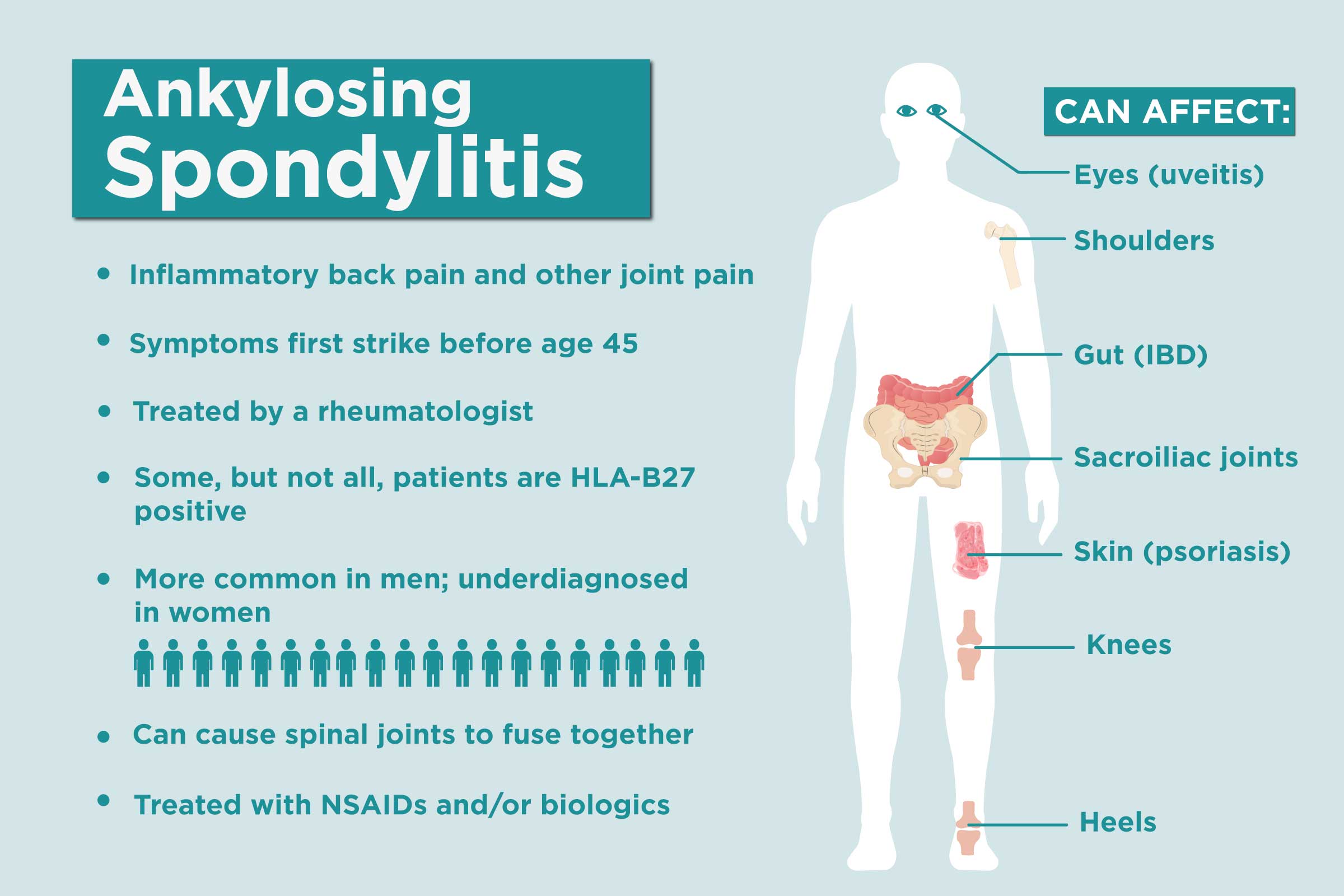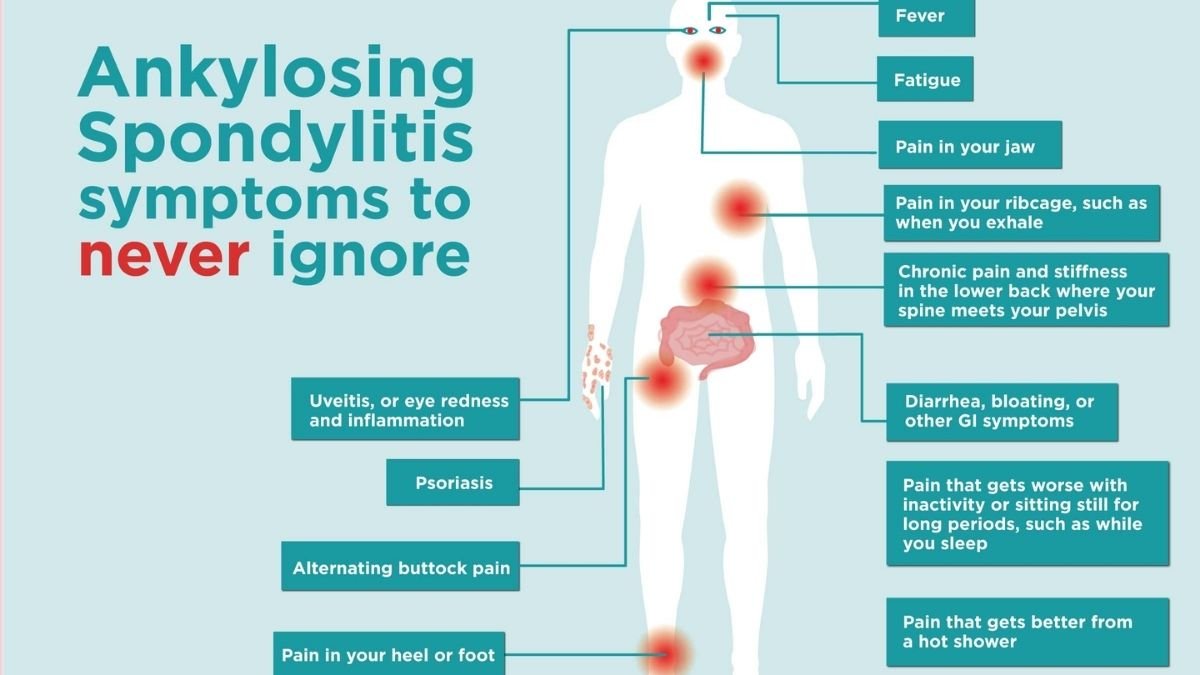Ankylosing spondylitis, or AS, can have far-reaching consequences that go beyond the physical.
While this rheumatic disorder causes fatigue, impaired physical functioning, and pain in the neck, hips, and back, people with AS are also more likely to develop depression and anxiety.
For the 300,000 Americans diagnosed with AS, managing disease symptoms, particularly pain, can have an impact on their quality of life.
That is why, if you have AS, it is critical to prioritise your mental health. Although the condition can be difficult to manage at times, there is much you can do to improve your mental health and thus alleviate psychological effects.
You are not alone if chronic ankylosing spondylitis pain has an impact on your mental health. Continue reading to learn more about AS, mental health, and how to get help.
A study of 161 people with AS found that participants reported high levels of pain that interfered with their daily functioning more than half of the time.
As a result of this pain, survey respondents reported “extremely severe” levels of psychological distress, specifically feelings of depression and anxiety.
According to a 2019 studyTrusted Source, if you’re dealing with depression in addition to ankylosing spondylitis, you’re not alone. Out of 245 patients, 44, or 18 percent, were found to be depressed.
While depression has been linked to both life factors (such as employment and income) and disease-related factors, researchers discovered that mastery — or how much control a person feels over life and disease — plays a significant role.
According to a 2019 Korean study
According to a reliable source, people who have ankylosing spondylitis are 2.21 times more likely than the general population to develop depression symptoms.
It could be linked to AS worsening symptoms: The more severe your symptoms become, the greater the toll a disease can take on your mental health and well-being.
Severe AS symptoms can make it difficult to perform daily activities such as driving or working, as well as socialise or go out with friends.
How to Deal with the Mental Health Consequences of Ankylosing Spondylitis
There are a variety of things you can do to help manage the mental health effects of AS. Here are a few alternatives to consider:
Make lifestyle changes that are appropriate for your needs.
Depending on the severity of your symptoms, you may want to modify your lifestyle to better suit your needs. First and foremost, it is critical to be at ease, especially in areas where you will spend the majority of your time.
If you have AS and it is interfering with your work, you should talk to your boss about creating a more comfortable work environment, such as through ergonomic equipment.
Being at ease in your surroundings, and, more importantly, taking precautions to avoid pain, are both critical for managing your mental health and overall quality of life.
It’s also critical to be open and honest with your friends, family, and loved ones about your feelings. As a result, when you participate in group activities or get together, you can socialise in a way that is appropriate for your pain level or current symptomology.
Discover a treatment strategy that works for you.
There is no such thing as a one-size-fits-all treatment plan, especially when it comes to mental health.
If you’re feeling depressed or anxious as a result of your AS pain, talk to your doctor about it so that you can find a solution.
Traditional talk therapy and medication may be helpful for some, while others may prefer to use holistic or alternative methods to manage the mental health effects of chronic AS pain.
Seek assistance.
If depression or anxiety are interfering with your life or daily activities, you should seek professional help from a psychologist, social worker, or counsellor for talk therapy, in addition to your primary care physician or rheumatologist.

Psychologists and social workers, like medical doctors, can specialise in working with specific types of patients. Look for those who state in their profiles or bios that they specialise in chronic pain or chronic illness.
When you call to schedule an appointment, you can also inquire about the person’s experience working with chronic pain or even AS.
If you decide to try medications, consulting with a psychiatrist can be beneficial.
You can also look for AS support groups, which can be found online or at local hospitals. Making connections with others who are going through similar experiences can help you cope and, as a result, improve your mental health.
Make self-care a priority.
At the end of the day, taking care of yourself on the inside and out is critical.
If you’re feeling down because of AS, try to find time to do something you enjoy, such as watching your favourite movie, drawing, listening to music, or reading a good book outside.
Setting boundaries is also a form of self-care. Communicating with friends, family, and coworkers to let them know how you’re feeling and what your limits are can help them understand your condition better.
Self-care can help you manage stress, increase your energy, and recognise emotional patterns, which can help you understand feelings of depression or anxiety.









































